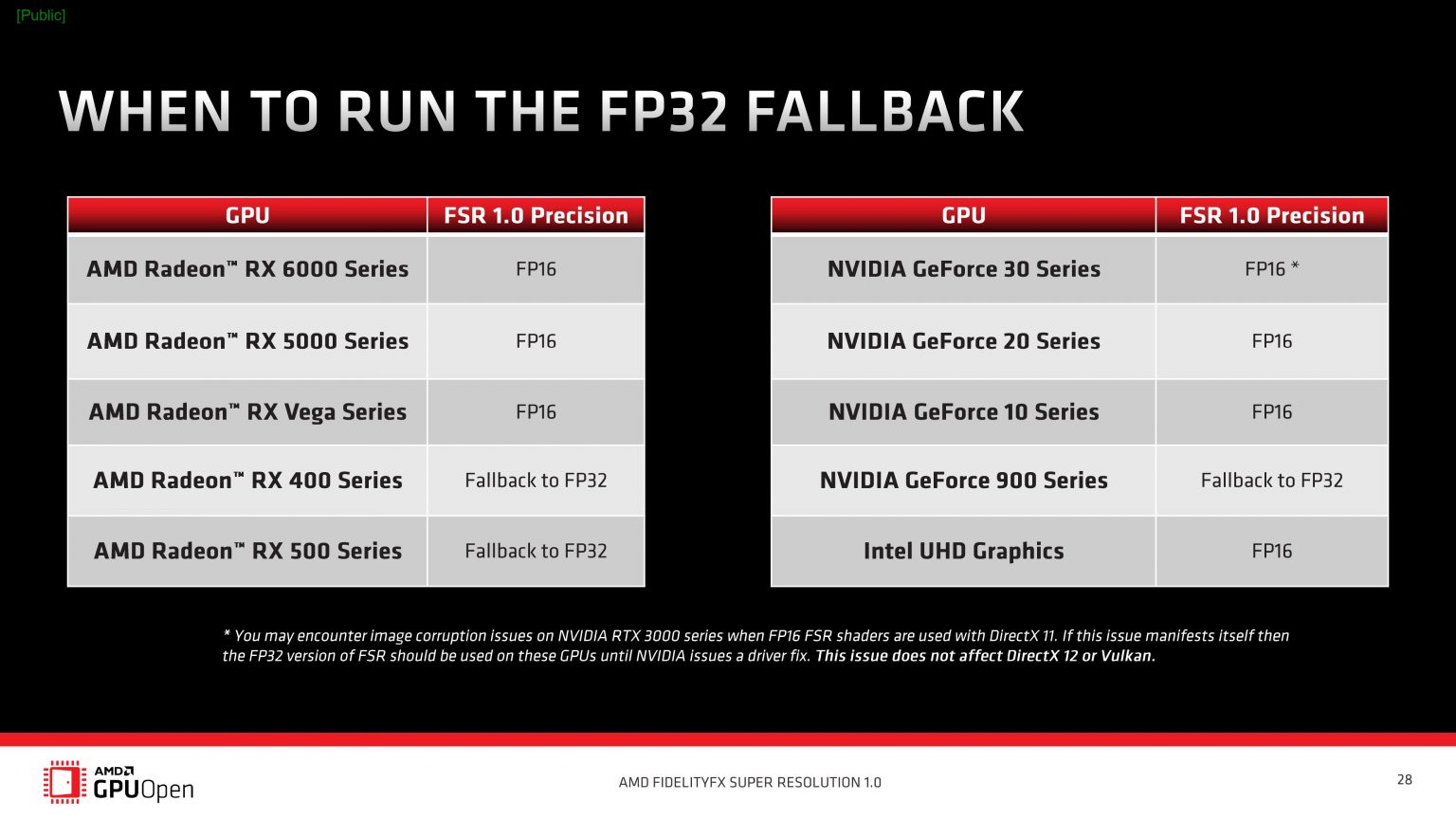AMD FSR rollback FP32 single precision test, native FP16 is 7% faster
On July 15th, AMD fulfilled its open-source commitment when FidelityFX Super Resolution (FSR) was launched and put the source code, development documents, and examples of FidelityFX Super Resolution on the AMD GPUOpen website. This move received a positive response from the development community. In addition to the open-source features of FidelityFX Super Resolution, its wide range of support is also supported by many players. In addition to AMD’s own GPU, even some old graphics cards of competitor Nvidia can also enjoy this technology, which improves performance, which is very useful in today’s market environment where the graphics card premium is serious.

When FidelityFX Super Resolution was open-sourced, AMD revealed that the upgrade technology supports the old GPU fallback, which means that Radeon RX 400/RX 500 series graphics cards that cannot natively support FP16 half-precision need to fall back to FP32 single-precision. For newer GPUs, including Radeon RX Vega/RX 5000/RX 6000 series, native FP16 half-precision is supported. This has a wider impact on NVIDIA’s graphics cards. Not only does the GeForce GTX 900 and 10 series need to fall back to FP32 single precision, but even the latest GeForce RTX 30 series may also have to fall back to FP32 single precision under DirectX 11.

Of course, this does not mean that the new generation GPU like Radeon RX 6800 XT cannot be rolled back for testing, in fact, by editing the source code published by AMD on the GPUOpen website, allow Radeon RX 6800 XT to fall back to FP32 single-precision operation, which can understand the performance difference between native FP16 half-precision and how big the difference will be.
According to the test data compiled by VideoCardz, under 4K resolution and Ultra Quality settings, the core frequency of Radeon RX 6800 XT is locked at 1800 MHz to ensure GPU performance bottleneck. The results show that the native FP16 half-precision operation is 7% faster than the fallback to FP32 single-precision operation.





